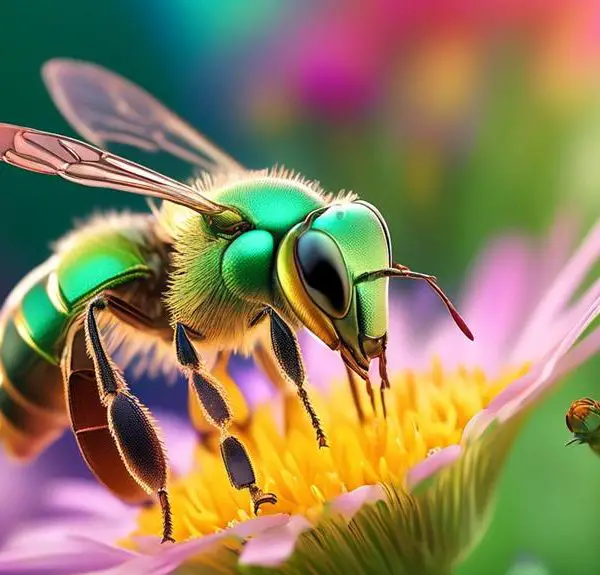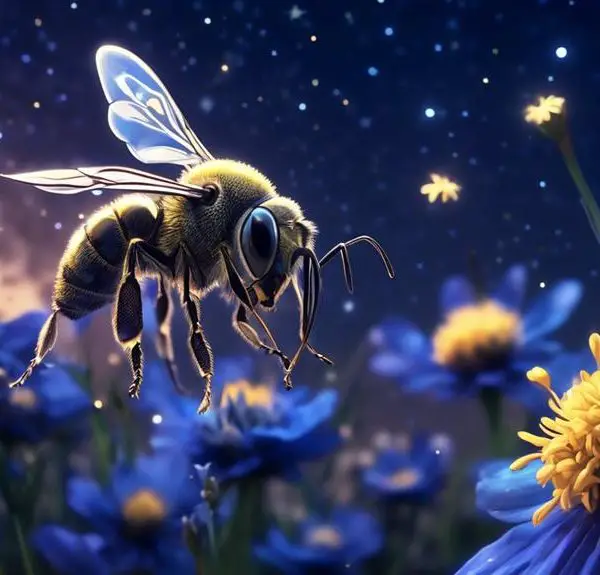Worried about sweat bees buzzing around your hummingbird feeder? Discover their impact on your feathered friends and learn how to manage this situation effectively.
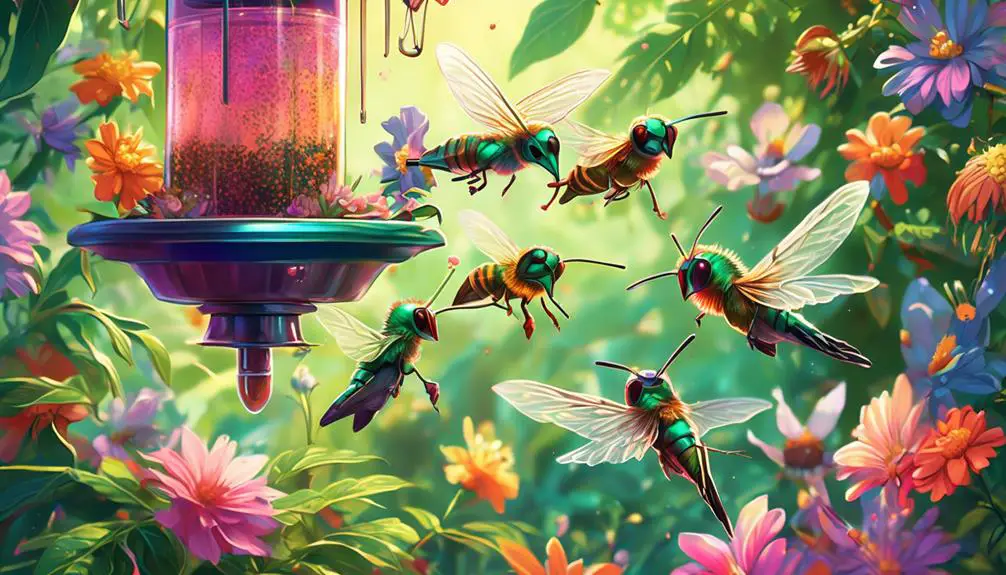
Sweat Bees on Hummingbird Feeder
Like uninvited guests at a party, you've probably noticed the swarm of sweat bees buzzing around your hummingbird feeder. While they're known to be generally harmless to humans, their attraction to the sweet nectar intended for your hummingbirds might leave you scratching your head in confusion.
You're not alone in this, as it's a common issue many bird enthusiasts grapple with. So, what's the deal with these little critters? Can they pose a threat to your feathered friends?
Let's embark on a journey to explore the fascinating world of sweat bees and their surprising affinity for hummingbird feeders. Your understanding of these interactions may provide valuable insights into how to manage this situation effectively.
Key Takeaways
- Sweat bees are attracted to hummingbird feeders because of the sweet nectar, but their presence can deter hummingbirds.
- Sweat bees are generally harmless to humans and sting only when threatened, with their sting being less painful than a typical bee sting.
- Sweat bees can be managed effectively by using feeders with bee guards or bee-proof designs, raising the height of the feeder, planting native flowers in a separate area to attract sweat bees away from feeders, and creating a salt lick to distract sweat bees from the hummingbird feeder.
- Changing the sugar solution ratio and providing a separate feeder with a sweeter solution can help lure sweat bees away from hummingbird feeders.
Understanding Sweat Bees
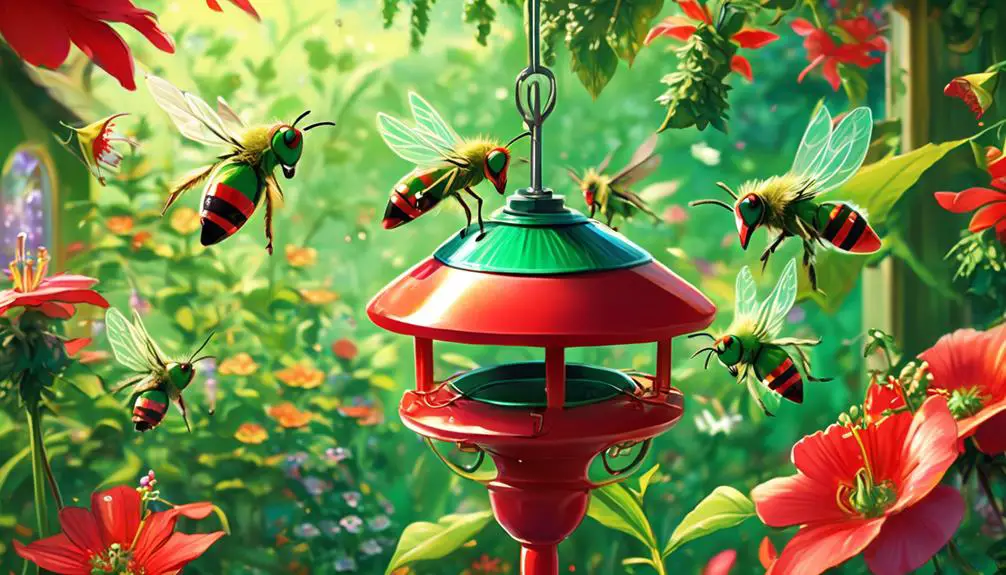
You might be surprised to learn that sweat bees, despite their off-putting name, are fascinating creatures worth understanding. These bees are a diverse group, with over 1000 species in the U.S. alone. They're tiny, often just a quarter of an inch long, and they're not typically aggressive. But you wouldn't want to provoke them, as they can sting, and it's not pleasant.
You'll often find sweat bees hovering around your garden or near your hummingbird feeder. They're attracted to the sweet nectar, just like hummingbirds. But don't worry, they're not there to harm your birds. They're just there for a quick drink.
Contrary to what their name suggests, sweat bees aren't particularly interested in your sweat. They're more attracted to the salts in your perspiration, which they use as essential nutrients.
Sweat Bees Vs. Hummingbirds

When sweat bees and hummingbirds converge on the same feeder, an intriguing interaction unfolds. You might think that the much larger hummingbird would easily dominate, but you'd be wrong. Sweat bees, despite their petite size, are tenacious and don't back down easily.
These bees are attracted to the sugar solution in the feeder, just like the hummingbirds. But don't worry, they're not there to harm your feathered friends. They're just looking for a meal. However, their presence can deter hummingbirds who might feel harassed by the buzzing insects.
If you notice this happening, you have a few options. You can make your feeders less attractive to sweat bees by changing the sugar solution. Sweat bees prefer sweeter solutions, so a ratio of 1:5 sugar to water might do the trick. Alternatively, you can provide a separate feeder for the sweat bees, filled with a sweeter solution to lure them away from the hummingbirds.
Attraction to Hummingbird Feeders
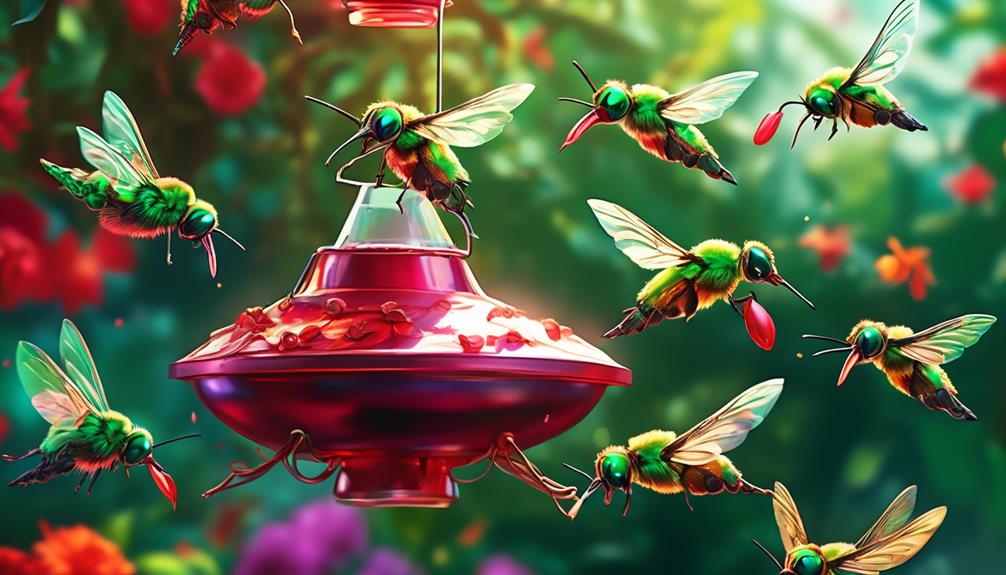
Sweat bees zero in on hummingbird feeders due to the sweet nectar they contain, creating an interesting dynamic in your backyard. These tiny insects are drawn to sugary substances, and the nectar in a hummingbird feeder is an irresistible treat. Just like hummingbirds, sweat bees feed on nectar because it provides them with the energy they need to fly and reproduce.
You might wonder why sweat bees can't find enough nectar in flowers. Well, sweat bees are opportunistic feeders. That means they'll take advantage of any available food source. And if there's a hummingbird feeder around, they won't hesitate to take a sip.
But this doesn't mean you should remove your hummingbird feeders. On the contrary, it adds a fascinating element to your garden's ecosystem. You're not just attracting hummingbirds, but a variety of wildlife. And yes, that includes sweat bees.
Managing Sweat Bees Effectively
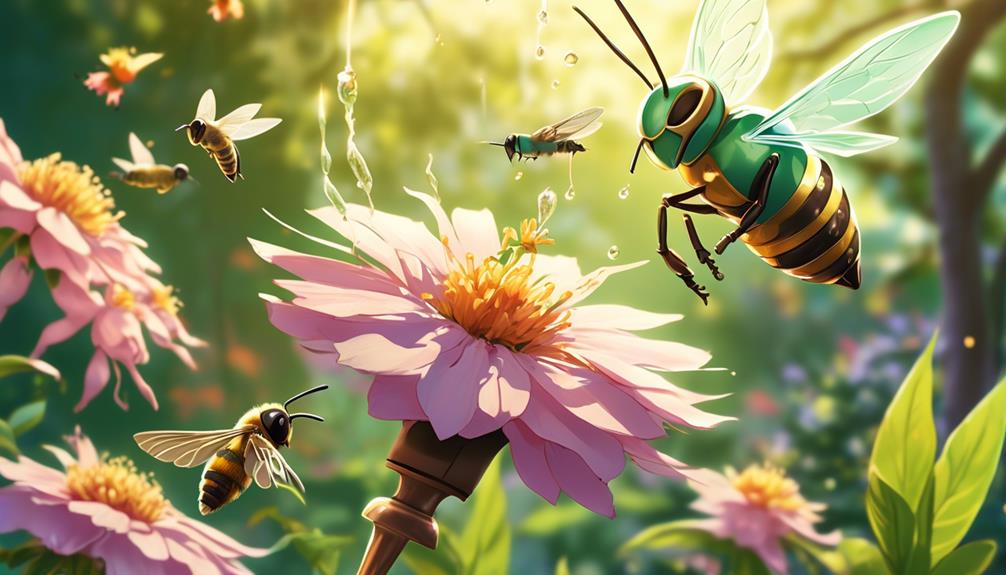
Despite the allure of hummingbird feeders to sweat bees, there are effective strategies to manage these tiny visitors without disrupting your backyard's thriving ecosystem. You don't need to resort to harmful pesticides or other extreme measures. It's all about balance and understanding the needs of these little pollinators.
A couple of key strategies include:
- Altering the feeder design:
- Opt for feeders that have bee guards or bee-proof designs.
- Adjust the height of your feeder. Sweat bees can't fly as high as hummingbirds, so raising your feeder can deter them.
- Attracting sweat bees elsewhere:
- Plant native flowers in a separate part of your garden. Sweat bees are great pollinators and will likely prefer the natural nectar.
- Create a salt lick for sweat bees. They're attracted to salt and this can distract them from your hummingbird feeder.
Are Sweat Bees a Threat?
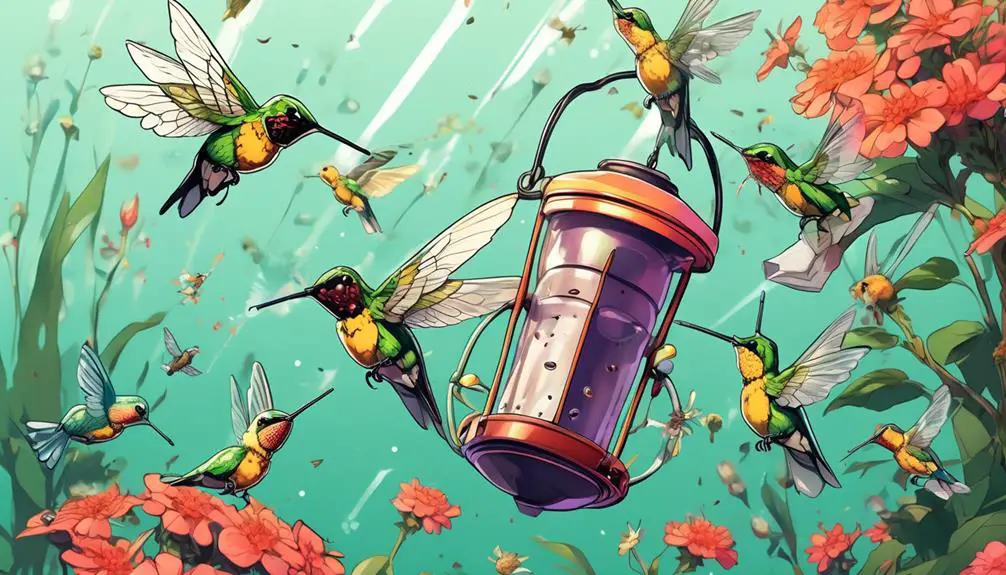
You might be wondering, are sweat bees a real threat to you or your hummingbirds? Well, let's address this concern.
Firstly, sweat bees aren't generally harmful to humans. They're non-aggressive and only sting when threatened or squashed. Even if they do sting, it's less painful than a typical bee sting. So, you don't have to worry about your safety around them.
As for your hummingbirds, sweat bees aren't directly harmful. However, they can become a nuisance as they compete with hummingbirds for nectar. In large numbers, they might discourage your hummingbirds from using the feeder. This isn't a threat per se, but it can affect your enjoyment of bird watching.
Yet, it's important to note that sweat bees are beneficial insects. They're excellent pollinators and play a crucial role in your local ecosystem. So, while they might be a minor inconvenience, they're not a real threat.
Conclusion
So, you've learned about sweat bees and their attraction to your hummingbird feeder. These bees aren't generally a threat, but they sure can be a nuisance. With effective management, you can keep your hummingbird feeder bee-free.
Remember, it's all about creating an environment that's more appealing to hummingbirds than to sweat bees. Don't let these tiny pests discourage you. Keep enjoying those hummingbirds!

